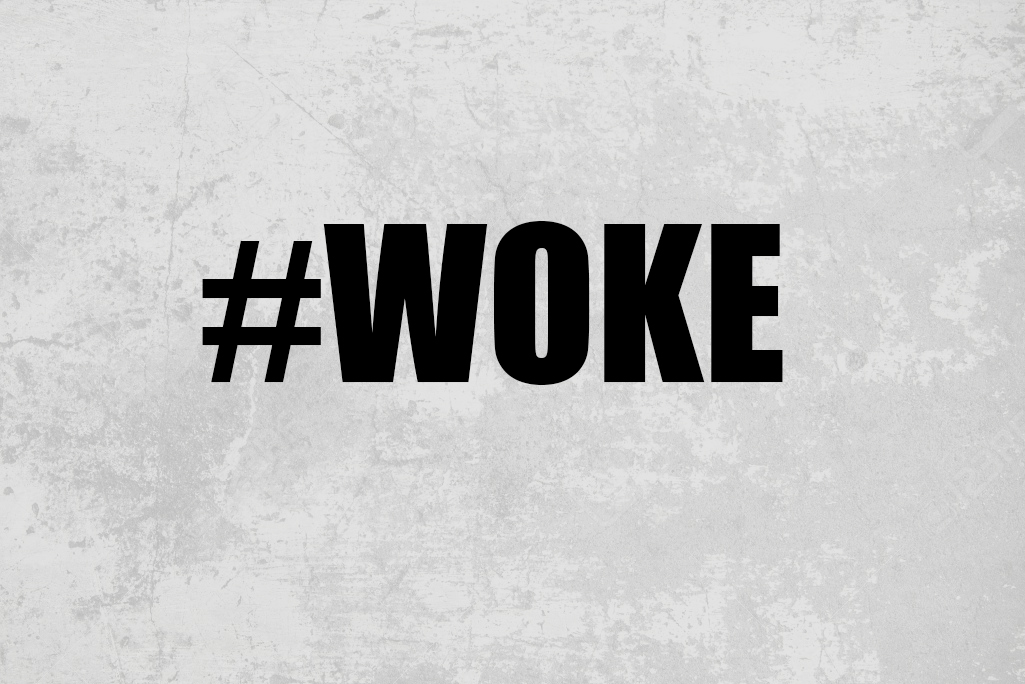If you haven’t heard about being “woke” then that means that you aren’t. Over the last year or so evangelicals have been calling for evangelical churches to get woke so that they might more successfully deal with racism and injustice in America.
The most prominent voice among those issuing this call is Pastor Eric Mason, the founder and lead pastor of Epiphany Fellowship in Philadelphia, Pennsylvania. He defines “woke” as an “urban colloquialism used by black nationalists and those who are in the black consciousness movement” to describe becoming fully aware of “the systemic, sociological, economic and comprehensive disenfranchisement of African-Americans” (DTS chapel sermon; online) Next month Moody will release a book by Dr. Mason that addresses this issue more thoroughly. It is entitled, Woke Church: An Urgent Call for Christians in America to Confront Racism and Injustice.
The concept has its roots in the latter part of the Civil Rights movement in the 1960s with the rise of the Black Power movement. Leaders of that movement contended that racism was not merely a barrier to be overcome in America but rather an “all-encompassing reality” in which African-Americans live (Steele, White Guilt, 32).
In 2008 Erykah Badu released a song entitled, “Master Teacher,” which repeats the refrain, “I stay woke.” Over the next several years the word began to gain currency in urban colloquial speech.
After the shooting of Michael Brown in Ferguson, Missouri in 2014, the term became solidified in modern vocabulary to refer to being fully aware of systemic racism in America. The Black Lives Matter movement has helped make the word popular by employing it in many of their promotional pieces.
African-Americans are encouraged and even expected to be “woke” if they are going to understand racism for what it really is. But for a white person to be considered “woke” is taken by many as a badge of honor. It is a sign that despite his or her place of privilege he or she has come to see things from the perspective of those who have been or are being systematically oppressed.
The great problem of the idea of being woke is that it is built on a presupposition that does not like to be challenged or even questioned. It presumes that racism in America is systemic and institutional in the sense that the whole society is built upon and organized around principles and practices that discriminate against black people. The only way to be considered woke is to accept that as a fact. To question or challenge that assumption is to be culturally blind at best and at worst, to be a racist.
One of the many things I love about the Bible is that it reveals reality to us and always calls us to face realities honestly. This goes for both seen and unseen realities. The Bible clearly reveals that God created this world and everything in it to be good and upright. It also reveals that sin has come and corrupted everything. Because of sin, nothing is the way that it is supposed to be or the way that God created it to be.
Sin separates us from God, turns us against one another and turns us in on ourselves. As a result, all of our relationships are corrupted and in need of restoration. This means that everything that sinful human beings touch becomes corrupted—including all human institutions and systems. As a result, people are often treated unjustly in this world.
That injustice is always the result of sin. It is not, however, always the result of racism. If the presuppositions of “wokeness” are uncritically accepted, then every injustice against a black person can be attributed to systemic racism. This will inevitably lead to wrong solutions being applied to real problems because some acts of injustice may have nothing to do with race at all. Furthermore, it will tend to create a cultural context where real racism gets downplayed or overlooked because unjustified accusations of racism are hurled about indiscriminately.
The good news is that the Bible reveals to us reality about not only sin and injustice but also about God’s solution for both. The very reason that God sent His Son, Jesus, into the world is to redeem us from sin and to make all things new. The grace that we receive in Christ is sufficient for us to live full, productive lives in a world of sin and injustice.
Paul’s words in 2 Corinthians 4 are very instructive at this point. He describes himself as being “afflicted in every way, but not crushed; perplexed, but not driven to despair, persecuted, but not forsaken; struck down, but not destroyed” (8-9). Then he concludes the section by sharing with us the secret of how Christians can live joyful, hope-filled lives in the midst of such oppression.
So we do not lose heart. Though our outer self is wasting away, our inner self is being renewed day by day. For this light momentary affliction is preparing for us an eternal weight of glory beyond all comparison, as we look not to the things that are seen but to the things that are unseen. For the things that are seen are transient, but the things that are unseen are eternal (2 Cor. 4:16-18).
For those who are trusting the crucified, risen Savior, we can be sure that even as outwardly we are wasting away and being forced to endure affliction, those afflictions in reality are “light” and “momentary” and are in fact working for us an eternal weight of glory. We will see this and be assured of this as we look realistically not only at outward realities, but also at unseen, eternal realities that are ours in Christ.
It is only in the light of those eternal realities that we will be awakened to see this present world with all of its brokenness as it really is and will be able to address its injustices with truth and grace.

